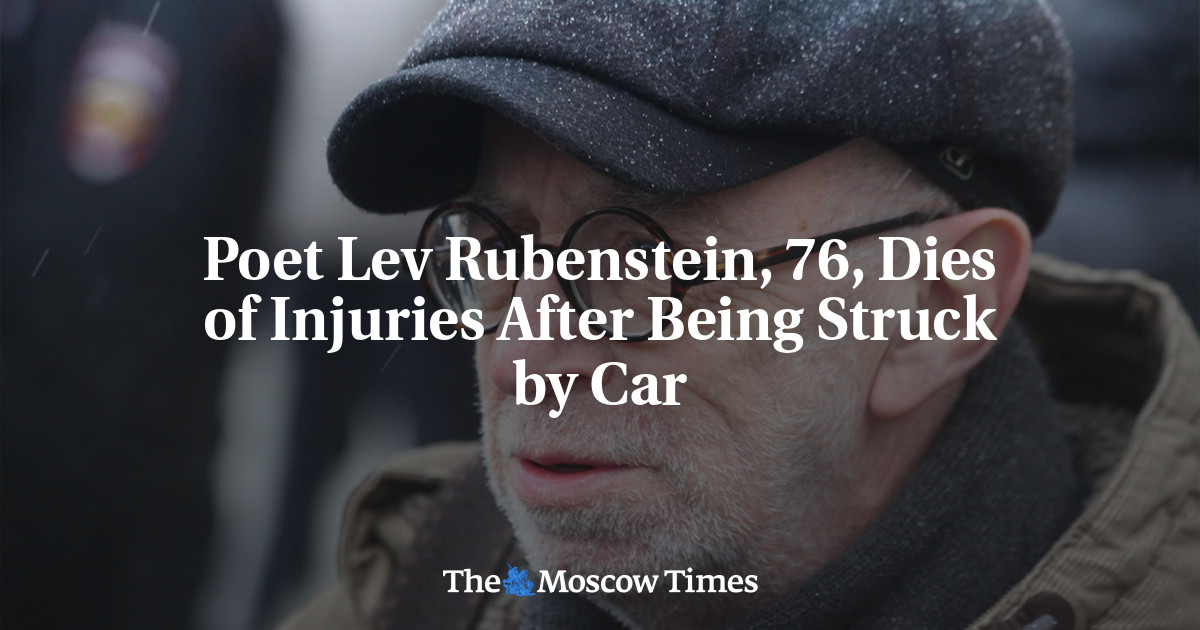
Poet, writer and social activist Lev Rubenstein, age 76, succumbed to injuries sustained when he was hit by a car in a Moscow intersection on Jan. 8.
The poet’s death was reported Sunday by his daughter, Maria, who wrote on LiveJournal, “My Papa, Lev Rubenstein, died today.”
Social media and Russian independent media were flooded with memorials to Rubenstein.
Journalist Sergei Parkhomenko wrote on his Facebook page: “Lev Rubinstein, an amazing, one-of-a-kind poet, essayist and wise man, died during the night. His poems, his short stories, his thoughts about what makes people tick, his attempts to understand and explain the world around him will remain with us and remain long after we are gone.”
Rubenstein was struck by a car in a Moscow intersection on January 8 and was taken to Sklifosovsky Emergency Hospital. The accident was reported by his friend, poet and journalist Igor Irtenyev, who said Rubenstein had suffered broken bones and was in critical condition. TV Rain reported that he suffered a traumatic brain injury. After surgery, he was put in a medically induced coma.
Rubenstein was born and grew up in Moscow, where he studied language and literature at Moscow State University and then worked as a librarian. In the 1970s and 1980s, he was part of the underground literary scene in Moscow and is considered one of the founders of Moscow Conceptualism. His first works were published in the Soviet Union only in the late 1980s.
In the 1990s he began to write essays and other materials for the press, including Kommersant, the journal Itogi, and many other periodicals. He published dozens of books and in 1999 was awarded the Andrei Bely Prize. Literary critic Dmitry Bavilsky called him “Today’s Chekhov — more sub-text than text, more pauses than words.”
Rubenstein was also an important social activist who took part in demonstrations against the persecution of writers and artists, against repressions in Russia and Belarus, and against the war in Ukraine.
“Any war is terrible, and not only because wars are easy to begin and very hard to stop. War is terrible not only because people are killed and cities destroyed. In war people’s souls are twisted and annihilated. The results of war are sometimes disastrous even for generations to come.”
He ended his New Year’s column for the publication Republic with this: It’s friendly curiosity that I wish you all. Especially curiosity about what is different, incomprehensible and new. Yes — what is new. That’s why from early childhood I have put the emphasis in that common phrase “new year” on the key word: “new.”
Republic has made his articles available here.
At present there is no information about funeral services.
An earlier version of this article was published on Jan. 9.





